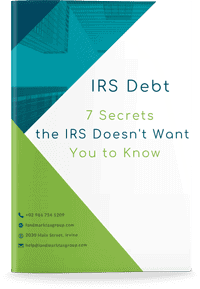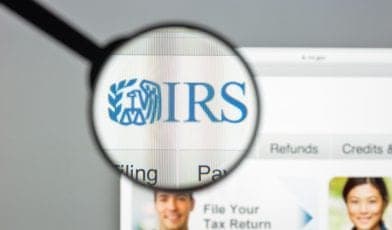4 Tax Strategies to Save Your Business Money

The Type of Business You Operate Determines the Taxes You Must Pay
In the United States, there are nearly 28 million small businesses. Of the 28 million, 70% are owned and operated by a single person. If you are the sole owner and operator of your business, it can be challenging to find the time to focus on taxes and money-saving strategies. In addition to finding the time, the constantly changing tax laws can make it complicated and difficult.
Before we discuss money-saving strategies, it is important to note the various types of business taxes. Business taxes include income tax, estimated taxes, self-employment tax, employment taxes and excise tax. The type of business you operate determines which taxes you must pay and how you pay them. In order to avoid tax-related debt, it is critical for business owners to understand their responsibilities when it comes to taxes and meet them on a timely basis to avoid penalties for failing to pay on time.
Taxes can be stressful and daunting for everyone, however, as a small business owner, you have particular benefits and deductions available to you to reduce your tax liability. Although your business may be unique, it is almost certain you are looking for ways to save money. Rather than waiting until the end of the year, consider putting the following money-saving strategies in place throughout the year.
1. Track Expenses Throughout the Year
In order to avoid an audit, it is very important to properly track your business expenses throughout the year. Many business owners are so busy operating their business, they fail to organize their records until the end of the year. While this approach may work for personal taxes, it will not work for business taxes.
Tax law states specific records are required to take deductions. If you do not have these records, legitimate expenditures may not be deductible. This easiest way to track expenses is through a computer-based or online system. By doing it yourself, you are not only aware of your income and expenses, you save money by not hiring a bookkeeper to do this for you. In addition to an online tracking system, set up a filing system for all receipts, proof of expenditures and paperwork. Categorize your receipts based on expense, so they are easy to find and understand.
Some of the biggest red flags for the IRS when it comes to issuing audits are unusual or excessive use of deductions or expenses, claimed exemptions and documentation issues. In order to avoid an audit, tracking expenses and deductions and keeping organized records is a must.
If you have received a letter or phone call from the IRS requesting an audit, it is imperative that you seek professional representation in a timely manner. Failing to properly handle an audit will only lead to additional financial expenses. For more information on IRS audits, contact us today.
2. Properly Structure Your Business and Classify Employees
Just as the structure of your business impacts the taxes you pay, so too does the way you classify your employees. Proper worker classification dictates how you report wages, pay payroll taxes, file reporting documents and more. If your employees are not properly classified, you could not only be paying unnecessary taxes, you could be facing tax law implications.
As an employer, you have the option to classify workers as employees or contractors. An independent contractor is a person who is contracted to do work for another person according to their own processes and methods. If you hire an independent contractor, you are not responsible for paying any taxes on their behalf.
An employee, however, is anyone who performs services for you that you are able to control. If you hire employees, you are responsible for withholding taxes from each of their paychecks and paying Social Security and Medicare taxes. In addition to this, you pay state unemployment compensation insurance and workers’ compensation insurance. You also have the additional expense of benefits, office space and equipment when you have employees.
Therefore, examine your business and what you need to run a successful business. Perhaps you do not need to hire a marketing employee, you simply need to hire an independent contractor to manage your social media. Properly structuring your business and classifying employees is a great money-saving strategy. If you have questions regarding employee classification, you can learn more here.
3. Pay Business Taxes Quarterly
As a business owner, you should make estimated tax payments quarterly to avoid penalties and interest. While you will not know the exact amount owed until the end of the year, you can make estimated payments based on your income and deductions. By making these payments on a quarterly basis, you avoid tax liabilities.
Estimated payments are due four times a year. If you do not pay quarterly, you will be subject to added interest on the unpaid tax liability. Penalties are mandated by the U.S. Tax Code and most are commonly assessed against taxpayers for nonpayment or underpayment. Rather than adding to the overall amount owed, pay your taxes quarterly and on-time to comply with tax laws and save money.
4. Contribute to a Retirement Account
Finally, if you operate a profitable business, one of the easiest ways to save money is to shelter income in a qualified retirement plan. This provides you with a tax deduction for your contribution as well as deferring tax on earnings on contributions. If you own a business with employees, you can also provide them with a retirement savings opportunity. If you elect to do this, be sure you properly document this tax deduction in order to avoid a potential audit.
Conclusion
As previously mentioned, it is difficult to stay current on all tax laws. Therefore, if you encounter any tax-related issues with your business, seek professional help quickly rather than trying to handle the issue on your own. Often times, people wait before they seek help and it results in time and money lost.
Get our Free Special Report: 7 Secrets the IRS Doesn’t Want You to Know!
Not only are we licensed Tax Relief Specialists, we are also former Senior IRS Agents that now serve the best interests of taxpayers like you – all we do is handle IRS Tax Relief matters, all day, every day. Speak to us for FREE at (949) 260-4770.
If you have questions regarding worker classification, tax liabilities or audits, feel free to contact us today. Our team consists of experienced CPAs, Enrolled Agents and former IRS agents. Contact us today at (949) 260-4770 for a FREE and CONFIDENTIAL consultation.




